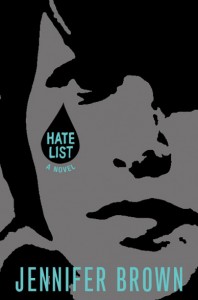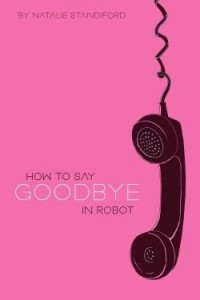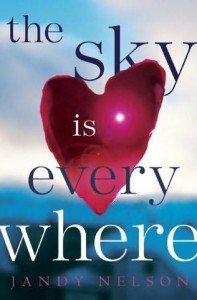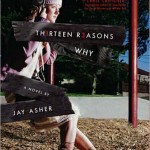Today’s Writing Wednesday segment is with Jennifer Brown, terrific Deb and author of Hate List (Little, Brown, September 2009). Despite deadlines and writing work galore, Jennifer had time to answer the questions below and then some. To find out more about Jennifer visit her at www.jenniferbrownya.com


1. Prior to Hate List, you were known for your humorous writing style. Was shifting from humor to serious difficult for you?
Not really. I actually began by writing serious stuff. I didn’t start writing a humor column until 2005, and had already been writing for 5 years at that time. Humor comes naturally to me, and I haven’t left it, but I really like to write on serious subjects. Doing both is a win-win!
2. How did Hate List come to you?
I think a lot of things came together at just the right time for me. I’d been bullied in school, and that had certainly been on my mind for a lot of years (I’ve never really understood what makes some people be so mean for no real reason). Also, as a parent, school shootings really frighten me. It’s shocking and terrifying to find out that the one safe place in the world for you to send your kids may not be so safe anymore. So these things are percolating around in my brain for… years… and, you know, so much of writing is just very mysterious. Things just sort of come together all at once and you didn’t even know all the parts and pieces were there until you look back. So, in that light, looking back, the inciting event for bringing all those parts and pieces together for me — as strange as this sounds — was the Nickelback song, “If Everyone Cared.” The song got stuck in my head one night while I was sleeping, and I woke up with these two characters in my head. I could “see” them so clearly. And their story was just… there. But if I’m being honest, it had been there for a long time. I just finally recognized it.
3. I always find it interesting to know an author’s writing process. How do you work? Do you get your characters first, the story, something else?
I’m a very character-driven sort of writer so, yes, I make sure I have the characters understood first. I usually begin with a little research, and do a ton of thinking about plot. Once I feel I have the basic plot idea in my head, I begin writing (long-hand) everything I know about the main characters (and sometimes even minor ones). I start with police blotter stuff, like age, weight, height, etc., then move on to family dynamics, motivation, and so forth. It’s really important to me to know my characters through and through or they won’t start “speaking to me.” If they don’t start “speaking,” everything just falls apart. Orson Scott Card’s book Characters and Viewpoints changed my writing life! I highly recommend it.
After I get my character information down, I just begin writing. I’m not a big outliner and I despise writing synopses. I like to just have my basic plot in mind and go with it. And I really like for my characters to change the plot themselves.
4. I was not surprised that I felt sympathy for Valerie in Hate List. However, I was surprised that I felt sympathy for Nick and saw him as a boy, not just a murderer. Did you understand him from the beginning? Was the Nick that evolved—the many facets of him—how you envisioned him from the start?
I understood him from the beginning, yes, but I didn’t write the good Nick stuff down at first. It wasn’t until my editor told me that the reader couldn’t just “take Val’s word for it” that Nick was a good guy that it really clicked with me. I’d sort of been treating him like a corpse, while in Valerie’s head he was still very much alive. I realized that, for readers to understand not only him and his motivation, but also to understand Val and her motivation, we needed to see him just being… normal sometimes. After I wrote the good Nick scenes, those turned out to be some of my favorite scenes in the book.
5. I love that you like board games. What is your favorite one?
I’m lucky in that I have a brother who is a major gamer, and is always going to these gaming conventions and always knows/has these games nobody’s ever heard of. They can be really fun. My favorite game at the moment is a card game called Once Upon a Time, where you play cards to build fairy tales. It’s a lot of fun! But there’s a game called Betrayal at the House on the Hill that we’ve played tons of times, and it would rank up there for me. And I love love love the game Ticket to Ride.
6. I’m not into playlists, but seems everyone else is. Are you? Does music inspire your characters?
I don’t think music really inspires my characters, no. But I will hear songs while I’m writing, or will think of songs that will make me go, “Omigosh, my character totally could relate to this song!” And I did create a Hate List playlist for my virtual launch party (http://jenniferbrown09.livejournal.com/5043.html ). That said, I’m a huge music lover, and I do like to have music playing in the background while I’m writing. The trouble is, I like to sing along, so I have to play foreign music that I don’t understand so I won’t get distracted.
7. I saw you have a book, PATCHED, coming out Spring 2011. Can you tell us about it? And I know you’re working on an adult book as well. Different genres, different styles. Is it hard to shift voices? Where else do you see your writing going?
PATCHED is about a girl involved in an abusive relationship with her boyfriend. I’m pretty superstitious about giving up too many details while I’m still working on a project, so I’ll leave it at that for now. Yes, I did just finish writing a light romantic adult story. It’s actually a story I began forever ago, before I started Hate List. And I’ve been adding little chapters here and there whenever I felt a need to lighten up. I want to say no, it’s not difficult to shift voices like that, but… well, we’ll see if this adult book sells. It may not be difficult to shift voices, but that doesn’t mean I do it well… Hahaha! I actually really like to switch up genres, even if I don’t do them all well. It keeps me from getting too one-note, I think.
8. I really enjoyed your blog entry about introverts. Do you have a specific place you like to be alone or that fuels and reenergizes you?
I love libraries. I could live in a library. In fact, I think if I accidentally got locked in a library overnight, that would be the awesomest thing ever! When I want to work — and really get after it! — I go to the library. I can get away with ignoring my cell phone and sitting in a corner with my back to the room and not speaking to anyone for hours on end and it’s totally socially acceptable in a library! What’s not to love about that?!
9. Your book has been out almost four months now. Can you tell us a little about your debut year?
Ahh, the dreaded debut year! Um, scary? How about exhausting? Confusing? Exhilarating? Exciting? Touching? Very, very humbling? All of the above! One thing I’ve learned — no matter how long you’ve been doing this writing gig, you learn very quickly your debut year what a newbie you are! And the first month after your book’s release just flies by — it’s more work than you ever imagined possible!
10. What has been the best part of these debut months?
I’ve had some very touching moments this year that really reminded me why I do what I do, but two really stand out in my mind.
I have these silicone bracelets that say “AGENT OF CHANGE” on them, and I give them out to teens here and there. I usually give them out in twos — one for the student I’m giving it to, and the other for that student to give to someone who isn’t already their friend. I sent a bunch of these to a middle school group who was reading my book, and I later got a note from their teacher, thanking me and telling me that his students were currently working with administration to create their own “Agent of Change Club.” I thought that was awesome!
Another time, during a school visit and library event trip to another city, I got an impromptu request to visit an alternative school in the area. My schedule was full, but something told me that I really needed to make every effort to get to that school. So I did. And it turned out that I was the first and only author to EVER visit that school. And the students were so excited about it, after I left, they decided to create a student-led book group.
Makes me so proud to be part of that!






